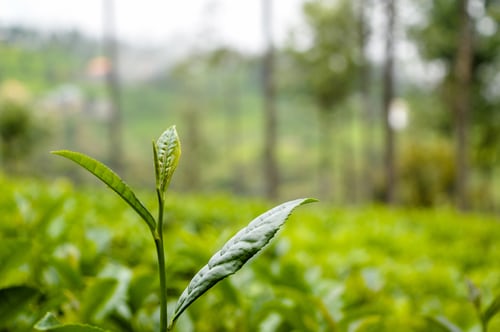
Mmm Green Tea, one of my favorites and a daily ritual for me. With so many flavorful combinations to try and it’s touted health benefits, what’s not to like. So far my two personal favorites are Green Tea with Honey-Lemong Ginseng, and a Lemongrass Green Tea which has a citrus zest flavor. The next green tea I’m going to try is GenMaicha, which is a blend of Green Tea and brown rice, I’ll let you know what I think.
Drinking green tea dates as far back as 4,000 years ago, when it was consumed as both a beverage and a medicine in many parts of Asia. These teas have been made from high-quality, organically grown Camellia sinensis leaves and offer the drinker helpful components like flavonoids, antioxidants, tannins, and more.
The dried leaves and leaf buds of Camellia sinensis are used to produce various types of teas. Green tea is prepared by steaming and pan-frying these leaves and then drying them. Other teas such as black tea and oolong tea involve processes in which the leaves are fermented (black tea) or partially fermented (oolong tea).
Green tea is not fermented and is produced by steaming fresh leaves at high temperatures. During this process, it can maintain important molecules called polyphenols, which are said to be responsible for many of the benefits of green tea. Polyphenols may prevent inflammation and swelling, protect cartilage between the bones, and lessen joint degeneration.
Green tea contains 2% to 4% caffeine, which affects thinking and alertness, increases urine output, and may improve the function of brain messengers important in Parkinson’s disease. Caffeine is thought to stimulate the nervous system, heart, and muscles by increasing the release of certain chemicals in the brain called “neurotransmitters.”
According to Webmd.com, Green tea’s biggest benefit? It’s catechin content. Catechins are antioxidants that fight and may even prevent cell damage. Green tea is not processed much before it’s poured into your cup, so it’s rich in catechins. Green tea also seems to help keep blood sugar stable in people with diabetes. Because catechins lower cholesterol and blood pressure, they can help protect against the damage a high-fat diet can cause.
What about weight loss?
Sorry, but no drink or food alone melts the pounds off. While some evidence suggests that the active ingredient in green tea, EGCG, may help you drop a few pounds, other studies show no effect. However, green tea is a healthier alternative to sugary drinks, providing you don’t overdo on the honey or sugar, “Oops, my bad”.
Well, I think it’s time to move on, so look for my next post about Grean Tea’s baby cousin White Tea.

